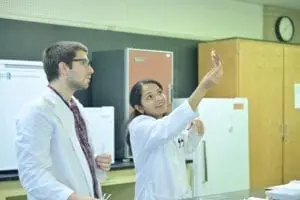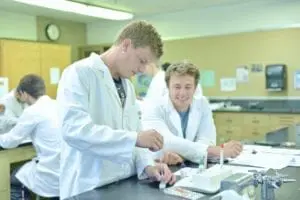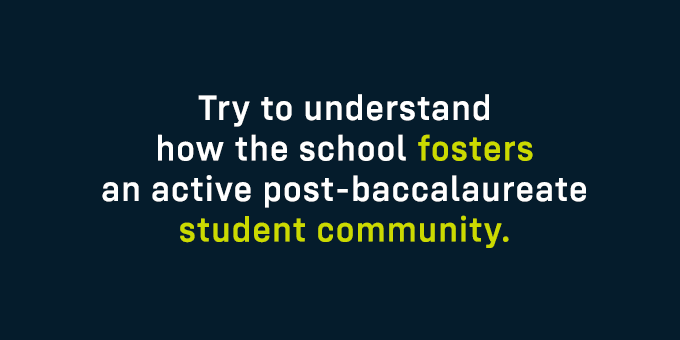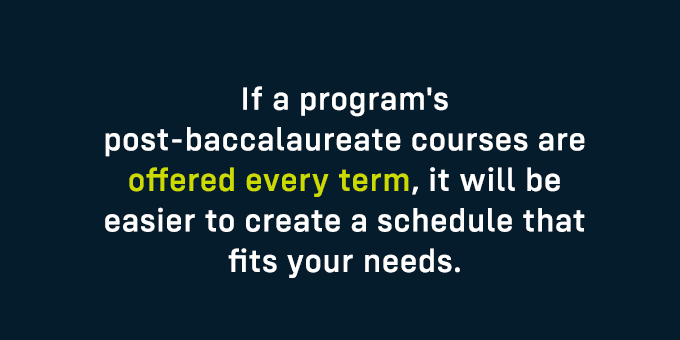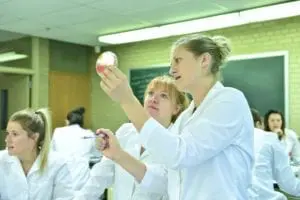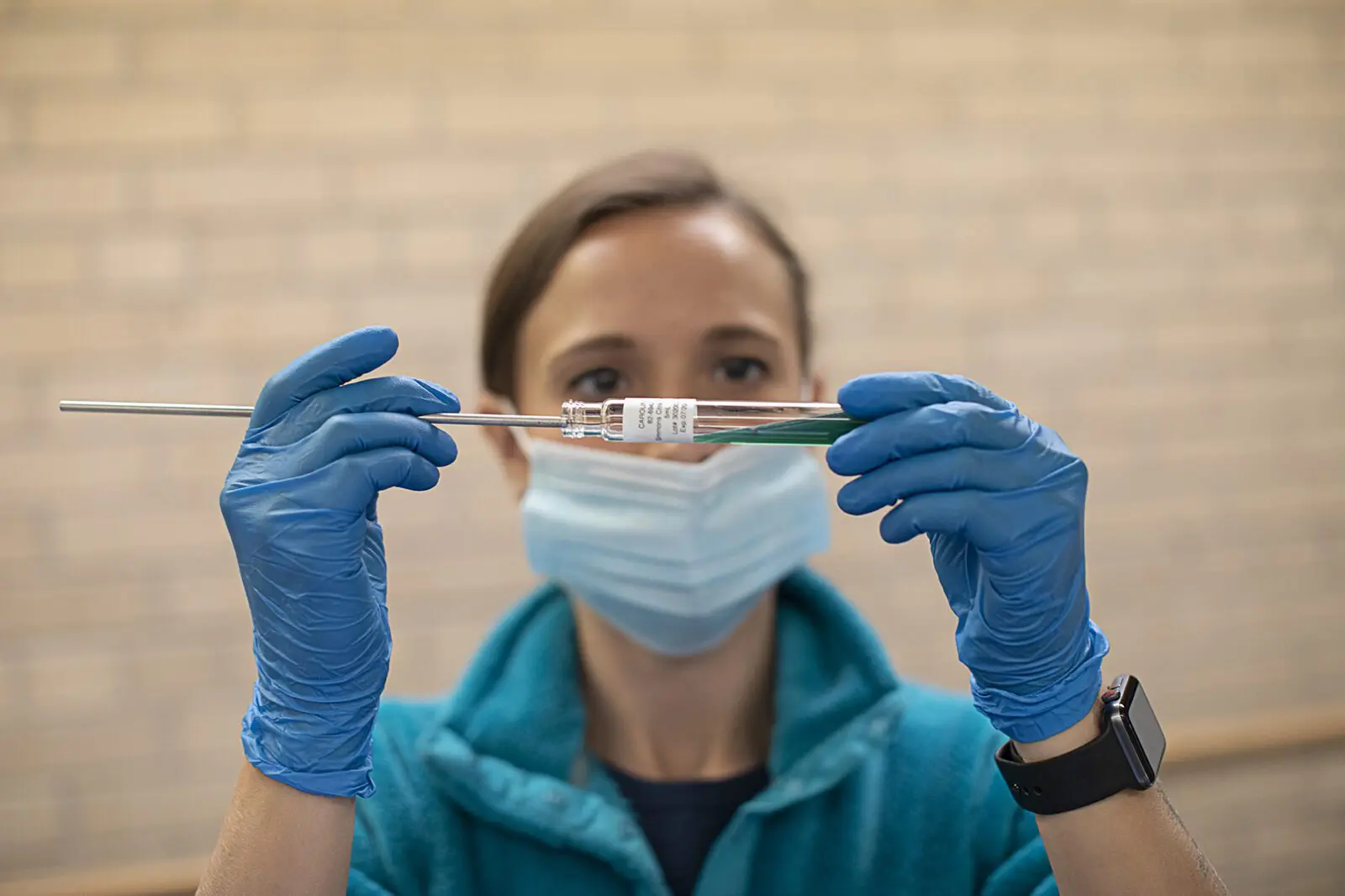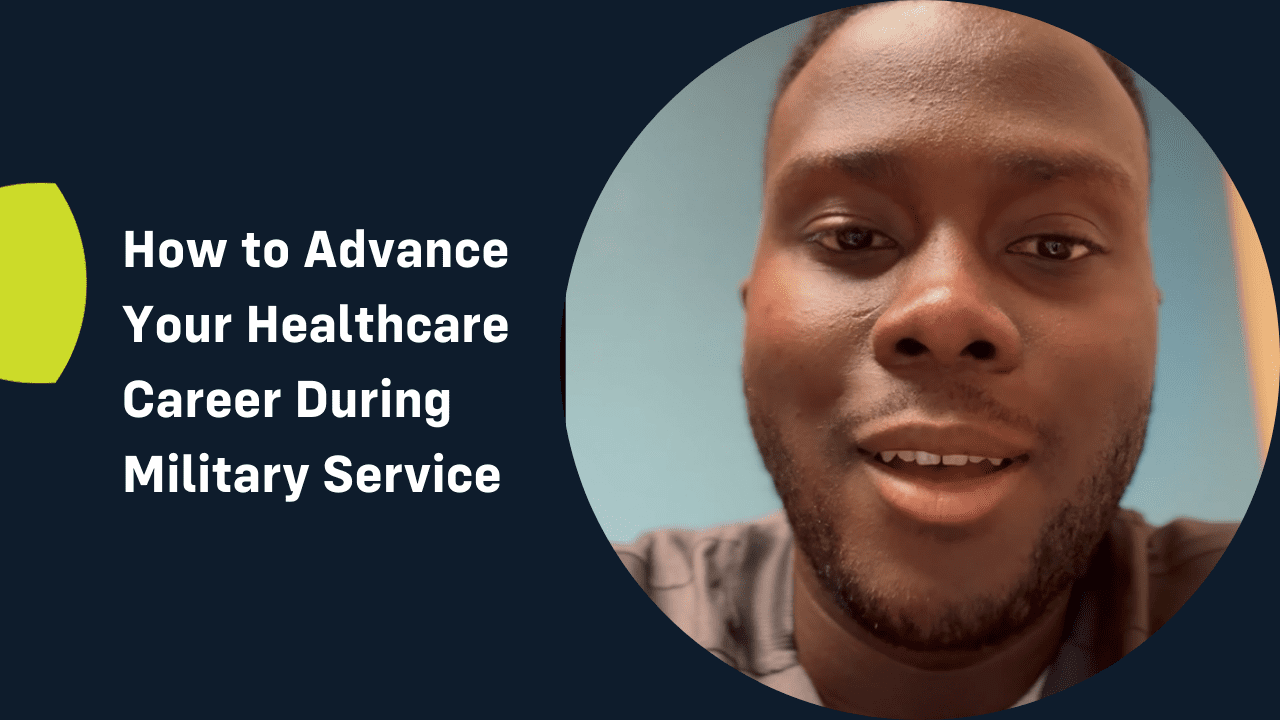Choosing the Right Post-Baccalaureate/Pre-Med Program: 10 Key Questions to Ask
Even if you already have a bachelor’s degree, you may not be ready for the next level of education required for a number of healthcare professions. In fact, to prepare yourself you may want to consider a Post-Baccalaureate/Pre-Health program (often referred to as a Post-Baccalaureate/Pre-Med program).
Many healthcare professions require completing a professional or graduate degree program.
But first, you need to be accepted into that program:
- Will you be a strong candidate?
- Have you taken all the science course prerequisites?
- How prepared are you to take the required entrance exams?
This is where a Post-Baccalaureate/Pre-Health/Pre-Med program can help.
But how do you choose a Post-Baccalaureate program that’s right for you? Here are 10 critical questions to help you make a smart choice.
1. What are you trying to accomplish by enrolling in a Post-Baccalaureate/Pre-Health program?
Get the most from your Post-Baccalaureate/Pre-Health program by knowing what you hope to accomplish. Most Post-Baccalaureate students fall into one or more of these categories:
- You want to prove you’ve mastered certain subjects. A Post-Baccalaureate program enables you to retake core science courses that you didn’t do so well on the first time around. By performing better on your second try, you can potentially show that those old grades don’t represent your true abilities.
- You need to fulfill prerequisites. To pursue that advanced or professional healthcare degree, you’ll need to successfully complete a number of science courses. If your undergrad degree didn’t require much science, you can take the necessary prerequisites through a Post-Baccalaureate program.
- You want to prepare for the standardized entrance exam. If you want to be a medical doctor or doctor of osteopathic medicine, you need to take the Medical College Admission Test (MCAT). Dental school requires the Dental Admission Test. The courses you take in a Post-Baccalaureate program can prepare you to take exams like these.
- You’re changing careers. If you want to change careers and need to go back to school, any or all of the above could apply.
2. How much one-on-one advising will you receive?
To be prepared for the next stage in your career, and your life, most post-baccalaureate students need to do more than a take few science courses. You’ll likely have lots of questions over the course of your post-baccalaureate experience.
That’s exactly why one-on-one advising is so important.
Here’s an example of what one-on-one support looks like: At Northwestern Health Sciences University (NWHSU), every post-baccalaureate student sits down with an advisor who helps you create a customized schedule based on your background, academic needs and career goals.
That personalized attention continues as you apply to professional programs and prepare for entrance exams. In addition, every post-baccalaureate student at NWHSU is assigned a faculty mentor.
To better understand how a Post-Baccalaureate program handles one-on-one advising, be sure to take advantage of information sessions and campus tours.
3. Who teaches the courses?
When investigating your Post-Baccalaureate/Pre-Health program options, find out about your instructors:
- Do the course instructors have experience teaching post-baccalaureate students?
- Will they be PhD level professors?
- Are the professors focused on students and teaching, or do they also have research responsibilities?
- If the courses include support from tutors or teaching assistants, do they conduct tutorials and review sessions? Will those be recorded?
Ideally, you want professors who are experienced at teaching a given subject and are familiar with the unique academic needs of post-baccalaureate students. That means they should also be prepared to provide valuable guidance as you apply to programs.
4. What will your student experience be like?
Being around like-minded classmates can go a long way toward helping you get the most from your Post-Baccalaureate program.
Post-baccalaureate students can be extremely helpful to one another as they study for class tests and standardized entrance exams, practice for interviews, and act as mutual sounding boards.
When looking into a program, see if you can speak with instructors, advisors and current students. You may even want to visit the campus and shadow a post-baccalaureate student.
Try to understand how the school fosters an active post-baccalaureate student community. Find out what kinds of clubs and other activities post-baccalaureate students participate in.
Information like this can give you a better understanding of what your student experience will be like. And that may be way more important than you realize.
5. What opportunities other than coursework does the Post-Baccalaureate program offer?
In addition to student activities like those mentioned above, a Post-Baccalaureate program should offer valuable experiences such as job shadowing, volunteering and community service.
Participating in activities like these can help make you a more attractive applicant. It may even give you insights that shape your career direction in healthcare.
Note that these opportunities are much easier to access when your program can connect you with an extensive network of clinics and community partnerships.
Depending on your interests, you may also want to explore your options for directed research.
In researching programs, be sure to also ask about valuable offerings like the following:
- Organized mock interviews
- One-on-one guidance from retired medical professionals
- Application assistance, including individual guidance with personal statements
- Mentorship opportunities with current medical students
6. How flexible is the program?
Many Post-Baccalaureate programs are highly structured with prescribed one- or two-year timelines.
You may not want – or need – to take all the courses these programs offer. Also, depending on your life situation, being a full-time student may not be an option.
For reasons like these, you may want to consider a more flexible pre-health program that you can tailor to your specific needs and life circumstances.
One specific note: Make sure to ask if a program’s post-baccalaureate courses are offered every single term. That feature can make it much easier to create a schedule that works with your needs.
Ask about accelerated courses
For people trying to complete their courses as fast as possible, a program that offers key foundational science classes in an accelerated format can be crucial.
For example, the accelerated courses offered at NWHSU mean that it’s possible to complete General Chemistry 1 and 2 and Organic Chemistry 1 and 2 in two semesters. That could take two full years with a non-accelerated format.
Check to see if lectures are recorded
If you happen to miss a class, will you be able to watch the recorded version online? That can be a lot more helpful than asking for someone’s notes.
In addition, having recorded lectures at your fingertips allows you to review areas that need reinforcement. Considering the complex material you’ll be covering in class, that’s a huge plus.
Finally, the recorded lectures can be an excellent resource when you’re preparing for the MCAT or other admissions tests.
7. What is the Post-Baccalaureate program’s criteria for acceptance?
The acceptance criteria for a Post-Baccalaureate program varies from one school to another.
Some programs have more stringent requirements when it comes to, for example, the minimum undergraduate GPA you need to be accepted.
Other programs, such as NWHSU’s, focus more on giving a wider range of people an opportunity to benefit from a post-baccalaureate experience.
8. What if you don’t have an exact direction yet?
Even if you don’t know exactly which healthcare profession you want to pursue, you can choose a Post-Baccalaureate/Pre-Health program offering courses that are widely applicable to various healthcare directions.
And depending on the program you choose, don’t forget about important opportunities like job shadowing and volunteering (see #5 above).
By fully immersing yourself in a Post-Baccalaureate/Pre-Health program, you have a valuable chance to explore a variety of potential healthcare paths.
In fact, even if you have a specific profession in mind, it’s possible that your post-baccalaureate experience will reveal a career direction that’s a better fit for you.
9. Will the courses you take (or retake) be accepted by the program you want to enroll in?
You’re obviously spending time and money on courses for a reason. If you are fulfilling prerequisite courses or retaking courses to improve your grades, make sure that they will be admissible to your target programs.
At NWHSU, for example, faculty help students research and understand important concerns like those upfront.
Note: Although you may find potential course options at community colleges, there’s a good chance they will not be accepted by the program you intend to enroll in.
Most professional healthcare programs need your prerequisites and other required courses to be taken at an accredited institution granting four-year bachelor’s degrees at a minimum.
Always check to make sure the courses you take will be accepted – never assume.
10. How much will it cost?
This question should encompass not only tuition and fees but also all the other expenses that will be involved in attending school. For example, if you’ll be relocating, what is the cost of rent?
Financial aid
Make sure you incorporate financial aid inquiries into your search early on. The best place to start is with a school’s financial aid specialists.
Generally, you are eligible to receive one year of financial aid when you attend a Post-Baccalaureate program.
Would you like to learn more about Northwestern Health Sciences University and our Post-Baccalaureate/Pre-Health program?
Contact us today and take the next step toward your career in healthcare!
Want to learn what makes Northwestern Health Sciences University so exceptional?

